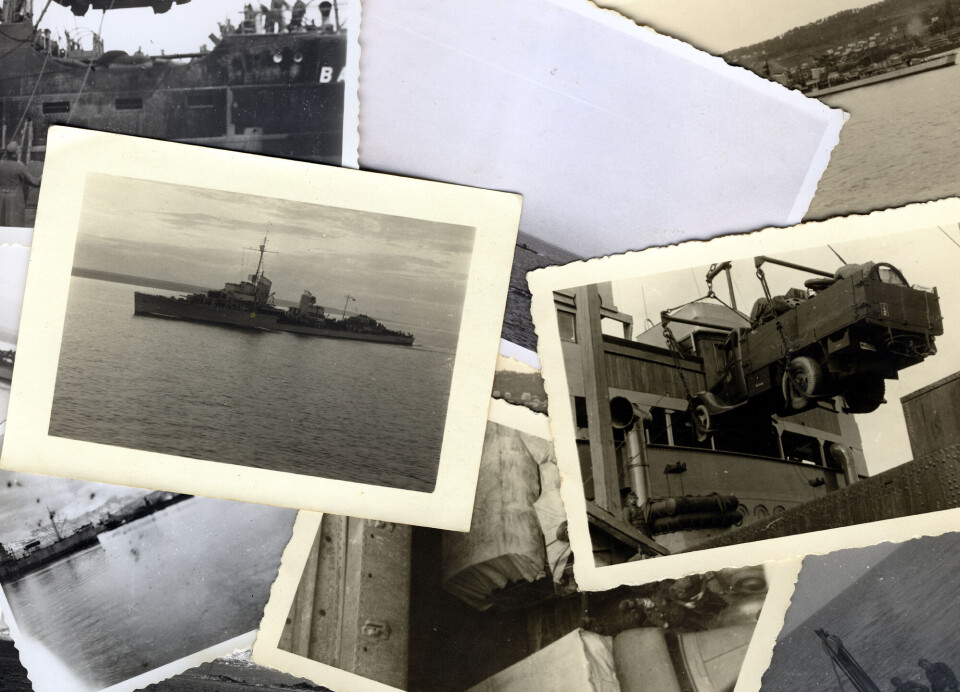THIS ARTICLE/PRESS RELEASE IS PAID FOR AND PRESENTED BY THE University of Agder - read more

Books about World War II are currently being written by those who did not experience the war themselves. What does this do to the narratives?
These books are written by the second or third generation descendants of those who experienced the war.
The Second World War is still an important topic in Norwegian public discourse. Many authors write both non-fiction and fiction about what happened during the war.
What is new is that many of them did not experience the war.
“These books are written by the second or third generation descendants of those who experienced the war, in addition to writers who just have an interest in the topic without having a family connection,” Unni Langås says.
She is a professor of literature at the University of Agder.
She calls the time we live in 'etterminnetiden' - a time of past memories.
Langås has written the book Krigsminner i samtidslitteraturen (War memories in contemporary literature). She looks at how memories from WWII are treated in Norwegian contemporary literature - in children's and young adult’s literature, in cartoons and in novels.

Descendants on both sides
“People who didn’t go through the war are still burdened by it. The war continues to play a role in their lives,” Langås says.
Two groups in particular have an identity that is strongly linked to the war in a problematic way, according to the professor: The descendants of the victims, and the descendants of the perpetrators.
“It is interesting to see how descendants of SS front fighters or other Norwegian Nazis express themselves in ways that give the impression that they have done something wrong,” Langås says.
The descendants of the victims likewise carry a heavy legacy from those tortured and killed.
“Those who survived have either remained completely silent, or passed on stories that the descendants will have to deal with. These stories form part of their identity too,” Langås says.
Hero myths from the war
In her book, Langås writes about the myths that were created around people during the war. These myths often live on today, even though authors want to write about the past in a historically correct way.
“Our national narrative concerns itself with how the war created heroes. People grow out of their realistic identity. That kind of myth-making still happens in fiction,” she says.
The professor also writes about values that can be discussed with a background in the literature about the war.
“War literature reminds us of the values that we still have to defend, but which we tend to take for granted today. Public discussions about democracy, freedom of expression and equality will continue to be important,” she says.
Stories follow the same pattern
Accounts from WWII have a fairly uniform structure, according to Langås. That is because those who tell these stories today relate to what has already been told.
“The authors have not experienced the war, so they have to rely on others. The stories are characterised by a repetition of conventions, narrative patterns and motifs. In a way it is natural, but it also makes certain demands on those who want to say something new about the past,” she says.
As an example, she mentions how first-hand accounts often had the same structure: They were picked up at home and asked to bring a suitcase. They were sent by train and dropped off at the concentration camp. There they were divided into groups. Some were immediately sent straight to the gas chamber and on to the crematoria. Others were sent into the camp. The stories end with the survivors returning home.
“The structure in these stories is very uniform, and is being reused by a new generation of writers. It's not a problem in itself, but it can result in lower quality texts,” Langås says.
Researching literary representations
The book is aimed at students and teachers. It therefore starts with a thorough introduction to literary memory studies.
While historians are interested in what happened, memory researchers are interested in how society understands history.
“Literary memory studies can help us understand what is remembered and what is forgotten, and it can give explanations for why people and the media react the way they do in critical situations,” Langås says.

This article/press release is paid for and presented by the University of Agder
This content is created by the University of Agder's communication staff, who use this platform to communicate science and share results from research with the public. The University of Agder is one of more than 80 owners of ScienceNorway.no. Read more here.
See more content from the University of Agder:
-
Fear being rejected: Half pay for gender-affirming surgery themselves
-
Study: "Young people take Paracetamol and Ibuprofen for anxiety, depression, and physical pain"
-
Research paved the way for better maths courses for multicultural student teachers
-
The law protects the students. What about the teachers?
-
This researcher has helped more economics students pass their maths exams
-
There are many cases of fathers and sons both reaching elite level in football. Why is that?




































